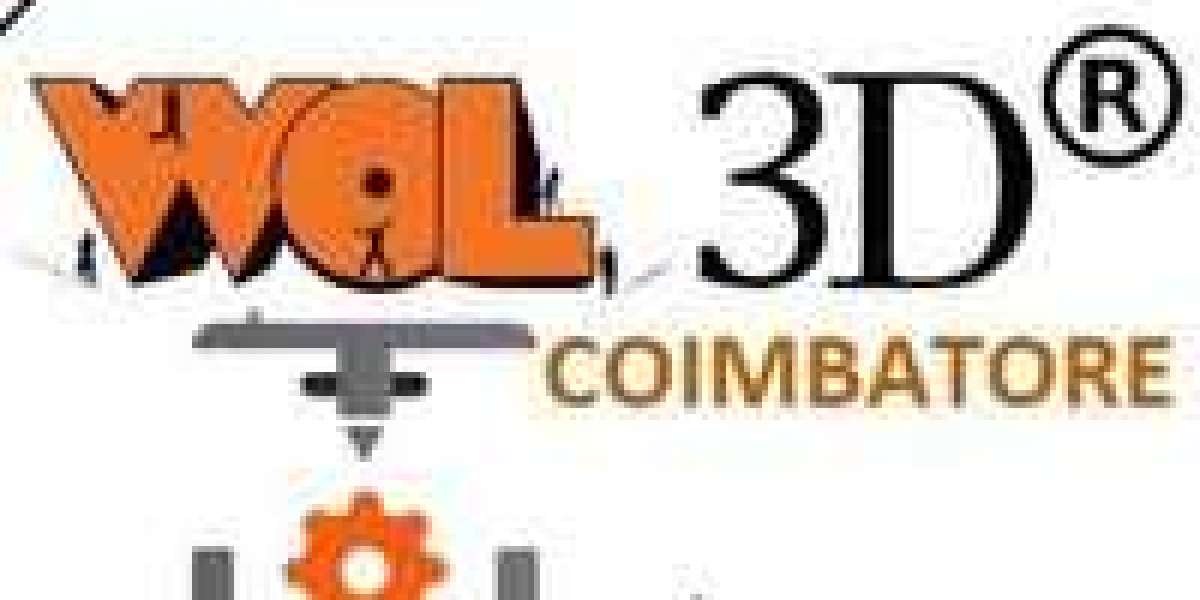In the competitive landscape of household goods wholesalers, maximizing profits while maintaining operational efficiency is crucial for sustainable growth and market leadership. B2B (Business-to-Business) portals have emerged as indispensable tools that empower wholesalers in the home supplies sector to achieve these goals effectively. GrowbusinessforSURE recognizes the significance of these digital platforms and supports household goods wholesalers in leveraging them to their fullest potential. This article explores how B2B portals can help household goods wholesalers maximize profits through enhanced sales opportunities, cost efficiencies, strategic pricing strategies, and data-driven decision-making.
Enhancing Sales Opportunities
B2B portals offer household goods wholesalers a gateway to expand their market reach and attract a broader base of buyers, thereby increasing sales volumes and revenue.
Global Market Access
One of the primary advantages of B2B portals like GrowbusinessforSURE is their ability to connect household goods wholesalers with buyers on a global scale. These platforms transcend geographical boundaries, allowing wholesalers to showcase their products to potential buyers from different countries and regions. By listing their home supplies inventory on B2B portals, wholesalers can tap into international markets, diversify their customer base, and capitalize on emerging opportunities in regions with high demand for household goods.
Targeted Marketing and Promotion
B2B portals provide robust marketing tools and features that enable household goods wholesalers to enhance their visibility and attract qualified leads. These platforms offer targeted advertising options, SEO (Search Engine Optimization) capabilities, and product promotion opportunities within specific categories or industry segments. By optimizing their product listings and leveraging promotional campaigns on B2B portals, wholesalers can effectively reach their target audience, drive traffic to their storefronts, and increase sales conversions.
Customer Relationship Management (CRM)
Maintaining strong customer relationships is essential for household goods wholesalers to foster loyalty and encourage repeat business. B2B portals often include CRM functionalities that allow wholesalers to manage customer interactions, track purchase histories, and personalize communication with buyers. By leveraging CRM tools, wholesalers can provide superior customer service, address customer inquiries promptly, and tailor their offerings based on individual buyer preferences. These efforts not only enhance customer satisfaction but also contribute to long-term customer retention and increased sales opportunities.
Achieving Cost Efficiencies
Cost management is a critical component of maximizing profits for household goods wholesalers. B2B portals offer various features and capabilities that help wholesalers optimize their operational costs and improve overall financial performance.
Streamlined Procurement Processes
Efficient procurement is essential for reducing purchasing costs and maintaining competitive pricing. B2B portals streamline the procurement process by facilitating seamless communication with suppliers, automating order placements, and enabling price comparisons across multiple vendors. Wholesalers can leverage these capabilities to negotiate favorable terms, consolidate purchasing activities, and minimize procurement-related expenses. By achieving cost savings in procurement, household goods wholesalers can improve profit margins and reinvest resources into growth initiatives.
Inventory Management Optimization
Effective inventory management is crucial for minimizing carrying costs and avoiding stockouts. B2B portals provide household goods wholesalers with advanced inventory management tools, such as real-time inventory tracking, demand forecasting, and automated replenishment systems. These tools enable wholesalers to maintain optimal inventory levels, reduce excess stock, and improve inventory turnover rates. By optimizing inventory management practices, wholesalers can mitigate inventory holding costs, enhance operational efficiency, and capitalize on sales opportunities without the risk of overstocking or understocking.
Logistics and Supply Chain Efficiency
Logistics and supply chain management play a pivotal role in cost optimization for household goods wholesalers. B2B portals often integrate logistics solutions that streamline shipping and distribution processes, optimize route planning, and negotiate competitive freight rates. By partnering with logistics providers through B2B portals, wholesalers can achieve cost efficiencies in transportation, warehousing, and fulfillment operations. These efficiencies contribute to lower operational expenses, faster order fulfillment times, and improved customer satisfaction, ultimately driving higher profitability for the business.
Implementing Strategic Pricing Strategies
Strategic pricing is instrumental in maximizing profits and maintaining competitiveness in the household goods wholesale market. B2B portals provide household goods wholesalers with valuable insights and tools to implement data-driven pricing strategies that align with market demand and competitive dynamics.
Competitive Pricing Analysis
B2B portals enable household goods wholesalers to conduct competitive pricing analysis by benchmarking their prices against industry peers and market trends. Wholesalers can access pricing data, monitor competitor pricing strategies, and adjust their pricing models accordingly to remain competitive. By offering competitive prices on B2B portals, wholesalers can attract price-sensitive buyers, stimulate demand, and gain a competitive edge in the marketplace.
Dynamic Pricing Adjustments
Dynamic pricing is a dynamic pricing strategy that allows household goods wholesalers to optimize profitability based on real-time market conditions and consumer behavior. B2B portals leverage algorithms and predictive analytics to analyze market trends, demand fluctuations, and customer buying patterns. Wholesalers can implement dynamic pricing algorithms that automatically adjust prices in response to changes in market demand, inventory levels, or competitor pricing strategies. By adopting dynamic pricing strategies on B2B portals, wholesalers can maximize revenue potential, improve sales conversion rates, and capitalize on pricing opportunities during peak demand periods.
Promotional Pricing Campaigns
B2B portals enable household goods wholesalers to launch targeted promotional pricing campaigns to stimulate sales and liquidate excess inventory. Wholesalers can create discount offers, bundle deals, and seasonal promotions within the platform's promotional tools. By strategically timing and promoting these campaigns on B2B portals, wholesalers can attract buyers, drive sales volumes, and optimize inventory turnover. Effective promotional pricing strategies not only generate immediate revenue but also enhance brand visibility, customer engagement, and market share for household goods wholesalers.
Data-Driven Decision Making
Data-driven decision-making is essential for household goods wholesalers to optimize business performance, identify growth opportunities, and mitigate risks. B2B portals provide wholesalers with access to comprehensive data analytics tools and actionable insights that facilitate informed decision-making across various aspects of the business.
Sales Performance Analytics
B2B portals offer household goods wholesalers detailed sales performance analytics, including sales trends, revenue forecasts, and customer segmentation analysis. Wholesalers can analyze sales data to identify top-performing products, understand customer preferences, and optimize product offerings. By leveraging sales performance analytics on B2B portals, wholesalers can allocate resources effectively, prioritize sales initiatives, and capitalize on high-demand products to maximize profitability.
Customer Insights and Behavior Analysis
Understanding customer behavior and preferences is critical for household goods wholesalers to tailor marketing strategies and enhance customer engagement. B2B portals provide tools for capturing customer data, tracking purchase behaviors, and conducting sentiment analysis. Wholesalers can gain actionable insights into customer preferences, buying patterns, and satisfaction levels through advanced analytics capabilities. By leveraging customer insights on B2B portals, wholesalers can personalize marketing campaigns, improve customer service, and cultivate long-term customer relationships that drive repeat business and loyalty.
Market Intelligence and Competitive Analysis
B2B portals empower household goods wholesalers to conduct market intelligence and competitive analysis by monitoring industry trends, competitor activities, and market dynamics. Wholesalers can access market reports, competitor benchmarks, and SWOT analysis tools within the platform. By leveraging market intelligence on B2B portals, wholesalers can identify emerging market opportunities, anticipate competitive threats, and adapt business strategies accordingly. This proactive approach to market intelligence enables wholesalers to stay ahead of industry trends, optimize resource allocation, and capitalize on growth opportunities to maximize profitability.
In conclusion, B2B portals play a pivotal role in maximizing profits for household goods wholesalers by enhancing sales opportunities, achieving cost efficiencies, implementing strategic pricing strategies, and enabling data-driven decision-making. Platforms like GrowbusinessforSURE empower wholesalers in the home supplies sector with the tools, insights, and capabilities needed to thrive in a competitive marketplace. By leveraging B2B portals effectively, wholesalers can optimize operational processes, drive revenue growth, and sustain long-term profitability. Embracing these digital solutions is not just a strategic imperative but a transformative step towards achieving business success and leadership in the dynamic landscape of household goods wholesale distribution.








